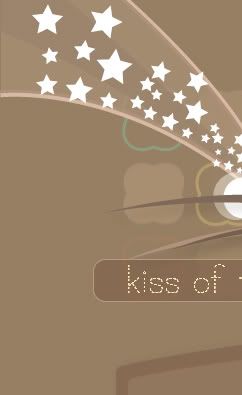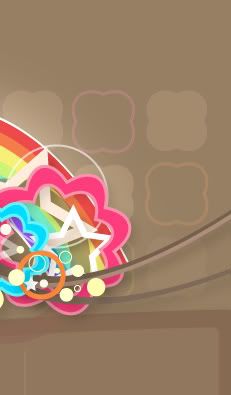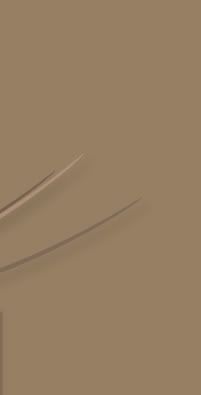Besides preparing medicine, i do all kinds of sai kang in the clinic, these includes clearing rubbish, serve tea for the doctor, wipe her tables and bed ect. recently as she's giving a talk in her chuch, she asked me to type some extracts from this book called detoxifying herbal tonics, which talks about cooking herbs that suppose to be good for the body. the book is written in dual languages, chinese with english translation. i'm suppose to type out the english portion.
its horrifyingly translated with lots of expression errors. i have to squeeze a lot of brain jucie to make admenmentz. some of the paragraphs deviates totally from the original meaning and i have to interprete from the chinese version rewrite using my own words. zzz.... i have pasted what i type here cuz i think they are rather useful. take a look:
The health philosophy of medicinal diet- Nutritious food works better than medicine
The Chinese said, ‘Food and medicine are from the same source.’ Since ancient times, the Chinese had the concept of medicinal diet. Using herbs in daily diet nourishes the body more effectively than taking medicine directly. Thus, for them, diet is not only for filling the stomach, but also for recuperating the body. They cherish good food as much as healthy food.
Just like taking herbal medicine, medicinal diet needs to be handled with the same care, improper dosage or use would result in undesirable or side effects. All those wanting to include herbal medicine in their diet for better health should learn the functions and nature of food items and herbs, and then use them wisely in relation to your own bodily needs.
There are five concepts to balance the body, namely Yin-Nourishing; Stomach and Digestion boosting; Heat-clearing and sweet inducing; Wind and Dampness- expelling; and circulation enhancement and pain alleviation.
Yin Nourishing
‘Nourishing’ or ‘supplementing’ is needed in case there is insufficiency (Asthenia) of Qi, Blood, and Yin or Yang energy in the body. Nourishment helps to bring back the chemical balance, which is one of the key concepts in Chinese medicine.
Nourishment can be specific on Qi, Blood, Yin or Yang. Qi nourishment is mostly on boosting the energy in the Spleen or the Lungs. Blood nourishment is mostly enhancement of blood cell formation and maintenance of Blood chemistry. Yin nourishment is mainly on promoting body fluid secretion and soothing Dryness in the body, it focuses on the Yin energy of the Liver, stomach and Kidneys. Finally, Yang nourishment commonly refers to the boosting of Yang energy in the kidneys.
Yin-nourishing recipes help to bring back the balance of body chemistry and relieve symptoms of invasion by external Evils. Yet those still having remaining symptoms of external Evils, even though they might have asthenic symptoms at the same time, should take medicine to get rid of the Evils completely before taking Yin-nourishing food. You can also try to nourish the Yin while combating the Evil when absolutely necessary. Those having weak Stomach or Spleen should use Yin or Blood nourishing food in moderation as such food tends to be thick greasy and tough to digest.
Stomach and Digestion Boosting
Recipes in this category enhance appetite and ease indigestion in order to relieve chronic or minor flatulence and indigestion. Commonly used herbs include haw (山楂), Shen Qu (神曲), malt(麦芽), Zhi Shi(枳实), Ji Nei Jin (鸡内金 chicken giblet )and peach kernels (桃仁).
Heat clearing and Sweat inducing
Heat-clearing recipes contain herbs of Cold or Cool nature. They dissipate and balance the internal heat of the patient with Heat symptoms. Sweat-inducing recipes, as its name suggests, contain elements that induce sweating in the patient so as to let out the Evil energy in the body through the sweat. The symptoms associated with superficial Evil invasion would then be alleviated.
Wind and Dampness-Expelling
Patients with Wind symptoms should use wind-expelling recipes while those with Dampness symptoms should take Dampness-Expelling recipes. They can be further classified into three categories according to different symptoms associated with the invasion of external Wind: Wind and Dampness-Expelling medicine is used on rheumatic numbing pain due to wind-Dampness; Wind-Expelling and pain alleviating medicine is used on migraine headache caused by flu, external wind invasion or wind in the head; Dampness-Expelling medicine is used on Dampness invasion or excessive fluid retention in the body.
Circulation enhancement and pain alleviation
Blood is the vital carrier of nutrients and chemicals. Under normal circumstances, it should flow through every part of the body along the vessels, to the internal organs and limbs. Yet, for some reasons, blood might not be flowing smooth and it might start to stay in certain parts (causing bruises) or breaking through the blood vessels (causing bleeding). The recipes in this section help revitalize the blood circulation and meridian system while easing bruises and alleviating pain.
Glossary on Chinese medical terms
Central Qi
It means the vital energy of the core internal organs, such as the physiological functions of the Spleen and Stomach.
Wind
Wind is one of the six Evils (Wind, Coldness, Heat, Dampness, Dryness and Fire) that invade the body. Wind can be further classified as External and Internal.
Fire
Fire is the fiercest in the summer and it is one of the six Evils that cause sickness. Fire is derived from Heat, which is in turn derived from Dryness. Thus, when Dryness turns into Heat and Heat escalates to discomfort and sickness, it is called Fire.
Coldness
Coldness is the most severe in the winter and it is distinguished by feeling cold and the energy tends to cluster around certain organs. It is one of the six Evils causing sickness and is further classified into external and internal coldness.
Dampness
Dampness is also the Evil most vibrant in summer. Dampness is one of the six Evils causing sickness and is further categorized into internal and external dampness.
Asthenia
It means the insufficiency of Jing (the essence of life), with general weakness and weak pulse.
Asthenic exhaustion
It refers to a range of symptoms caused by asthenia of Jing, Blood or other internal organs. Asthenic exhaustion includes depletion of body chemistry due to extreme emotions, poor diet, lack of rest, excessive alcohol consumption, excessive sex or lack of medical care after recovery from sickness.
True fire
True fire refers to the symptoms caused by overactive Heat in the body or by invasion of external fire, or by unbalanced diet.
Promoting Qi circulation
It means encouraging the flow of Qi (vital energy) in the body.
Jie Biao
It means letting out the Evil energy in the body to relieve the superficial symptoms.
Qi-Asthenia
Asthenia also means deficiency. Thus, Qi-Asthenia means the insufficiency of vital energy in the body and general weakness due to poor functioning of internal organs.
Yang-Asthenia
It means the depletion of Yang energy in the body, accompanied by the deterioration in bodily functions such as warming, pushing, steaming and gasifying.
Yin-Asthenia
It means the lack of body fluid, Qi and Blood among patients, accompanied by deterioration of bodily functions like nourishing, moistening and irrigation.
San Jiao
Chinese herbal doctors divide the human torso into upper (i.e. chest), middle (i.e. abdomen) and lower parts (i.e. lower abdomen posterior to the naval). They are known as San Jiao collectively, which is also one of the six Fu’s according to the Zang Fu theory.
Heat-Toxin
The heat would turn into toxin after prolonged accumulation.
Tips on cooking Chinese medicine
Water for cooking medicine
Generally, drinking water is fine. Depending on the nature of the herbs and healing mechanisms, herbs can sometimes be cooked in wine or a mixture of wine and water.
Quantity of water
Herbs should be submerged in water with water level exceeding the herbs by 2 to 5 cm. However, depending on the nature and volume of medicine, as well as the length of cooking time, level of water can be adjusted accordingly.
Pots for Chinese medicine
Clay pots are the best container for cooking medicine. Containers made of iron, copper and lead should never be used.
Heat control for cooking medicine
Boil the medicine first before switching to low heat.
Cook first and add last
Medicine involving shells or of mineral nature should be broken into pieces first and leave to boil for 15 to 20 minutes before adding other herbs. Medicine of a volatile nature should be added to the medicine in the last 5 minutes.
Precious medicine’s treatment
Such medicine should be sliced and cooked on its own. We can drink its liquid directly or cook the liquid with other medicine.
Taking Chinese medicine
It is important to take medicine at the right time, with the appropriate method and proper care for the best results.
Time to take medicine
Before meals
Most medicine should be taken before meals, particularly those that ease the pain of digestive tract and those with laxative function. This is because they need to be digested and absorbed quickly.
After meals
With more food in the stomach after meals, medicine can be mixed with the food, causing less irritation to the stomach wall. Some medicines, such as those for curing indigestion, should be taken after the meal for better effect.
At least one hour between having a meal and taking medicine is needed for throughout digestion and absorption.
The dosage
Herbal medicines are usually taken once a day. For serious diseases, it might be taken every 4 hours around the clock, so as to improve the efficiency of the medicine.
Medicines that induce sweat or have laxative functions are strong. Patients should take care not to overdose. Generally, patients should stop taking the medicine once sweating of diarrhea has occurred. In such case, completing the whole course of medication should be avoided to prevent profuse sweating which will harm the Qi in your body.
Patients who vomit should take small amount of medicine each time, but on a frequent basis. Smaller dosage causes less irritation to the stomach and reduces the chance of vomiting. Patients should take the medicine more frequently so as to keep up with the daily dosage.
Cold or hot medicine
Generally, most medicine should be taken warm to cure disease of cold nature. This is especially true for those sweating inducing medicines with spicy taste and warm nature. They are usually prescribed for flu or common cold with wind-coldness. The medicine should be taken warm to cover your body in duvet so as to induce sweat. On the contrary, patients with cough who have wounds in the throat should take the medicine after it cools.
Now i'm frantically trying to type out the introduction to various herbs. at least its more interesting to read.







